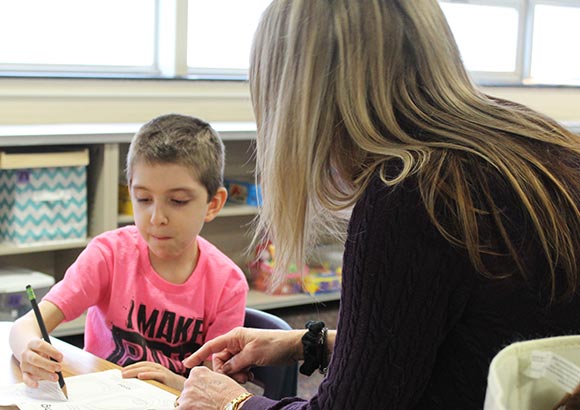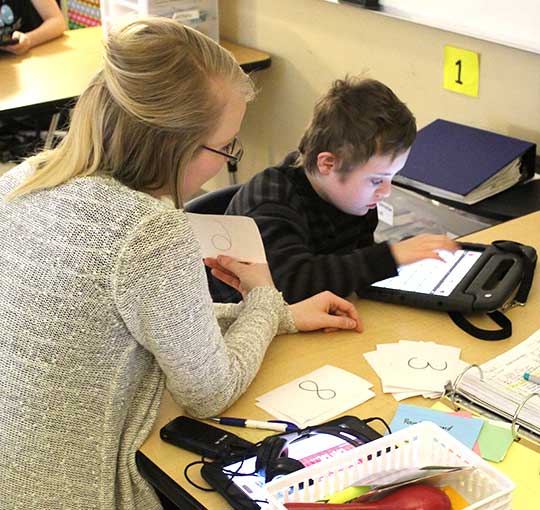Applied Behavior Analysis (ABA) is the process of systematically applying interventions to improve socially significant behaviors. The primary objective of ABA techniques a to focus on why behaviors occur when addressing a variety of social issues, including helping individuals to learn.
For over 15 years, New Story Schools has provided services to our students built on the foundation of ABA. Our schools employ Board Certified Behavior Analysts and Board -Certified Assistant Behavior Analysts to conduct Functional Behavior Assessments, develop Positive Behavior Support Plans, and collaborate with the multi-disciplinary team to integrate behavior intervention
strategies across the academic day.

About ABA
ABA is applied to a range of ages, populations, settings and social concerns such as education, healthcare, addiction, depression and behaviors associated with autism.
Years of scientific research validate ABA. The U.S. Surgeon General, the American Academy of Pediatrics, American Academy of Neurology and many others endorse this systematic process as a scientifically proven approach for treating children with autism and related disorders. The field of ABA is vast but always focuses on the change of socially important behaviors.
The New Story Schools team wants to know those behaviors significantly affecting a students’ ability to learn, play and successfully engage in society.
Functional Behavior Assessment and Positive Behavior Support Plan
The behavioral components of our ABA program are based on the fundamentals of Applied Behavior Analysis. Upon enrollment into our School, each student is assessed on the function of their behavior (FBA). A positive behavior support plan (PBSP) is then developed based on the results of the assessment.
New Story Schools Behavior Analysts will conduct a Functional Behavior Assessment for each student enrolled. Data gathered during the FBA will then be analyzed to develop an individualized Positive Behavior Support Plan (PBSP) for each student.
The PBSP outlines the perceived functions of problem behaviors, identifies those behaviors targeted for increase and decrease, and describes the strategies used to teach the student appropriate replacement behaviors. How new behaviors will be generalized across the day is detailed, so students can problem solve and function within their usual settings. When new skills are introduced with generalization procedures in place, students are less likely to be prompt dependent, more independent and teams can better determine what skills they possess rather than what others are helping them do.

Terms You Will Hear
- Antecedent
What happens immediately before a behavior. This could be something around you, such as a loud noise before you jumped, or someone else’s actions such as smiling at you before you giggled.
- Behavior
Anything a person does that can be observed and measured. Behaviors are defined, measured and analyzed in the context of what happened before and after their occurrence.
- Consequence
Whatever occurs in the environment immediately after the behavior. This is not how we traditionally think of consequences being a punishment. A consequence could be very positive, such as receiving a high-five after finishing your work.
- Data
Facts and information gathered for analysis. Data could include counts of how often a child raised their hand in class, or how long someone held their breath.
- Function of the Behavior
All behaviors occur for a reason. Determining the function of a behavior is discovering why a behavior occurred. Functions could include escaping an unpleasant job, trying to get someone’s attention, wanting to be left alone, and others.
- Functional Behavior Assessment (FBA)
This is the process by which behavioral interventions are created. An FBA determines the function (or the reason) for a behavior and then creates an intervention based on that function.
- Reinforcement
Providing something that will maintain or increase a specific behavior. If you have been at work for a week and you get your paycheck (the reinforcer), you are more likely to go back to work next week.
- Replacement Behavior
A behavior chosen as a more socially acceptable alternative to current behavior. For example: Instead of shouting out loud during math class, the team teaches the replacement behavior of raising a hand before talking.

